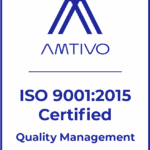FAAC INCORPORATED ISO9001:2015 Certificate
Certification
 FAAC Incorporated received its ISO 9001 certification in May 2004 from DNV Certification. The newest edition of the standard is ISO 9001:2015, published in September 2016. FAAC, Inc. was transitioned to this new standard on October 10, 2016, by American Systems Registrar, LLC (ASR). While this certification expires after three years, FAAC is subject to yearly surveillance audits by the 3rd party auditor from ASR.
FAAC Incorporated received its ISO 9001 certification in May 2004 from DNV Certification. The newest edition of the standard is ISO 9001:2015, published in September 2016. FAAC, Inc. was transitioned to this new standard on October 10, 2016, by American Systems Registrar, LLC (ASR). While this certification expires after three years, FAAC is subject to yearly surveillance audits by the 3rd party auditor from ASR.
Brief ISO History
ISO (International Organization for Standardization) is the world’s largest developer and publisher of International Standards. It is a network of the national standards institutes of 159 countries, one member per country, with a Central Secretariat in Geneva, Switzerland, that coordinates the system. ISO is a worldwide federation of national standards bodies (ISO member bodies). The work of preparing International Standards is normally carried out through ISO technical committees. International Standard ISO 9001 was prepared by Technical Committee ISO/TC 176.
The basis of ISO 9001 is that it promotes the adoption of a process approach when developing, implementing, and improving the effectiveness of a quality management system. In turn, this enhances customer satisfaction by meeting customer requirements. ISO 9001 is updated and published every seven years or so. The current edition from ISO9001:2008 is ISO9001:2015.
Our Quality Management System (QMS)
FAAC, Inc. has established, documented, implemented, and maintains a Quality Management System (QMS) to continually improve upon its effectiveness by the requirements of the International Standard ISO 9001.
Our QMS demonstrates the ability to provide products that meet customer and applicable regulatory requirements consistently. It also aims to enhance customer satisfaction through the effective application of the system, including processes for continual improvement of the system and the assurances of conformity to customer and applicable regulatory requirements.
Management has adopted the principles of the QMS based on the following ISO9001 clauses:
Section 4: Context of the Organization – FAAC has established, documented, implemented, and maintains a QMS to continually improve upon its effectiveness in accordance with the requirements of the ISO9001 International Standard
Section 5: Leadership – Taking accountability for the efficiency of the quality management system by promoting the use of the risk-based thinking process approach and focusing on customers current and future needs, requirements, and expectations
Section 6: Planning – FAAC’s management continually seeks to improve the effectiveness and efficiency of the processes of the organization, rather than wait for a problem to reveal opportunities for improvement
Section 7: Support – FAAC’s management determines and provides the resources needed to implement and maintain the quality management system and continually improve its effectiveness to enhance customer satisfaction by meeting customer requirements. Through leadership, Management creates an environment where employees are actively involved in the quality management system
Section 8: Operation – FAAC identifies the procedures, instructions and quality plans necessary to achieve the product’s quality target and requirements, including the processes for the inspection and test activities specific to the product, as set forth by the technical planning and directions of management
Section 9: Performance Evaluation – FAAC’s management uses data generated as a result of monitoring and measurement and from other relevant sources to demonstrate the suitability and effectiveness of the quality management system and to evaluate where continual improvement of the effectiveness of the quality management system can be made.
Section 10: Improvement – FAAC takes action to eliminate the cause of non-conformities or the cause of potential non-conformities. Continual improvement is the constant goal of the organization


